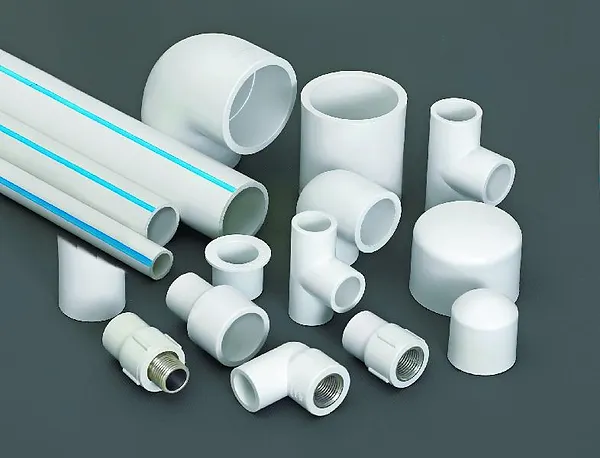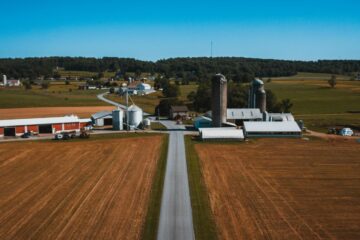Unplasticized Polyvinyl Chloride (UPVC) pipes have become a staple in modern construction and plumbing due to their durability, strength, and cost-effectiveness. Unlike regular PVC, UPVC does not contain plasticizers, which makes it more rigid and ideal for various applications. In this article, we will delve into what UPVC pipe means, its advantages, and its common uses. We will also highlight how JS PIPE, a leading provider of UPVC pipes, offers high-quality products to meet diverse needs.
Understanding UPVC Pipe
UPVC stands for Unplasticized Polyvinyl Chloride. It is a type of plastic commonly used for pipes, windows, and other construction materials. The key difference between UPVC and regular PVC (Polyvinyl Chloride) is the absence of plasticizers. Plasticizers are chemicals added to PVC to make it more flexible. By not including these additives, UPVC remains rigid, making it more suitable for certain applications.
Advantages of UPVC Pipes
- Durability: UPVC pipe is highly durable and resistant to various environmental conditions. They do not corrode, rust, or degrade over time, making them an excellent choice for long-term use.
- Chemical Resistance: UPVC pipes are resistant to a wide range of chemicals, making them suitable for industrial applications where chemical exposure is common.
- Cost-Effectiveness: UPVC pipes are less expensive than many alternative materials, such as copper or iron. Their low cost, combined with their long lifespan, makes them a cost-effective solution for many projects.
- Low Maintenance: Due to their durability and resistance to environmental factors, UPVC pipes require minimal maintenance. This reduces the long-term costs associated with repairs and replacements.
- Non-Toxic: UPVC is a safe material for transporting drinking water, as it does not leach harmful chemicals into the water supply.
- Eco-Friendly: UPVC is recyclable, contributing to environmental sustainability. Using UPVC pipes can help reduce the overall environmental impact of construction projects.
Common Uses of UPVC Pipes
UPVC pipes are used in a variety of applications due to their versatility and robustness:
- Water Supply: UPVC pipes are commonly used for water supply lines in residential, commercial, and industrial buildings. Their non-toxic nature makes them ideal for transporting drinking water.
- Sewage and Drainage: The chemical resistance and durability of UPVC pipes make them suitable for sewage and drainage systems. They can handle the harsh conditions and chemicals often found in wastewater.
- Irrigation: In agricultural settings, UPVC pipes are used for irrigation systems. Their resistance to UV radiation and environmental stressors ensures they perform well in outdoor conditions.
- Industrial Applications: UPVC pipes are used in various industrial processes where chemical resistance is crucial. They are employed for transporting chemicals, gases, and other industrial fluids.
- Electrical Conduits: UPVC pipes are used to protect electrical wiring in buildings and infrastructure projects. Their non-conductive nature and durability make them ideal for this purpose.
Why Choose JS PIPE for UPVC Pipes?
JS PIPE is a renowned provider of high-quality UPVC pipes, offering a wide range of products to meet the needs of different industries. Here’s why you should consider JS PIPE for your UPVC pipe requirements:
- Quality Assurance: JS PIPE ensures that their UPVC pipes are manufactured to the highest standards, providing reliable and durable solutions for various applications.
- Innovative Solutions: JS PIPE continuously invests in research and development to offer cutting-edge piping solutions that enhance efficiency and performance in plumbing and industrial systems.
- Comprehensive Support: From product selection to installation guidance, JS PIPE provides comprehensive support to ensure a seamless experience for their customers. Their expertise and commitment to customer satisfaction set them apart in the industry.
Installation of UPVC Pipes
Installing UPVC pipes involves a few key steps to ensure optimal performance:
- Planning: Determine the layout of your piping system, including the lengths of pipes and types of fittings required.
- Cutting and Measuring: Measure and cut the UPVC pipes to the necessary lengths using a pipe cutter or saw.
- Cleaning and Deburring: Clean the pipe ends and fittings to remove any debris or burrs.
- Joining: Use appropriate solvent cement to join the pipes and fittings securely.
- Testing: Once installed, test the system for leaks and ensure all connections are secure.
Conclusion
UPVC pipes offer numerous advantages, including durability, chemical resistance, cost-effectiveness, and low maintenance. These attributes make them ideal for a wide range of applications, from water supply and sewage systems to industrial processes and electrical conduits. By choosing high-quality UPVC pipes from JS PIPE, you can ensure reliable and efficient performance for your projects. Whether you need pipes for residential plumbing or large-scale industrial applications, JS PIPE has the solutions to meet your needs. Click more to explore JS PIPE’s extensive range of UPVC pipes and fittings and find the perfect products for your requirements.
Keep an eye for more news & updates on Tribune Tribune!




